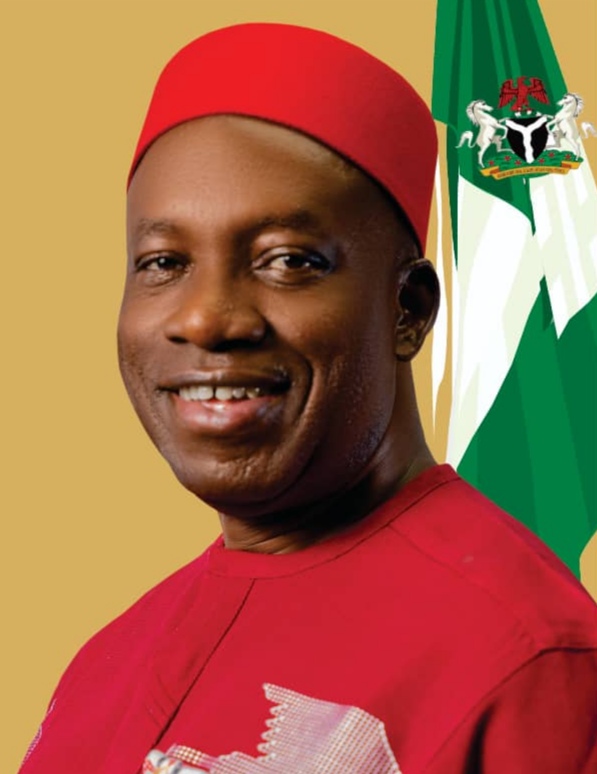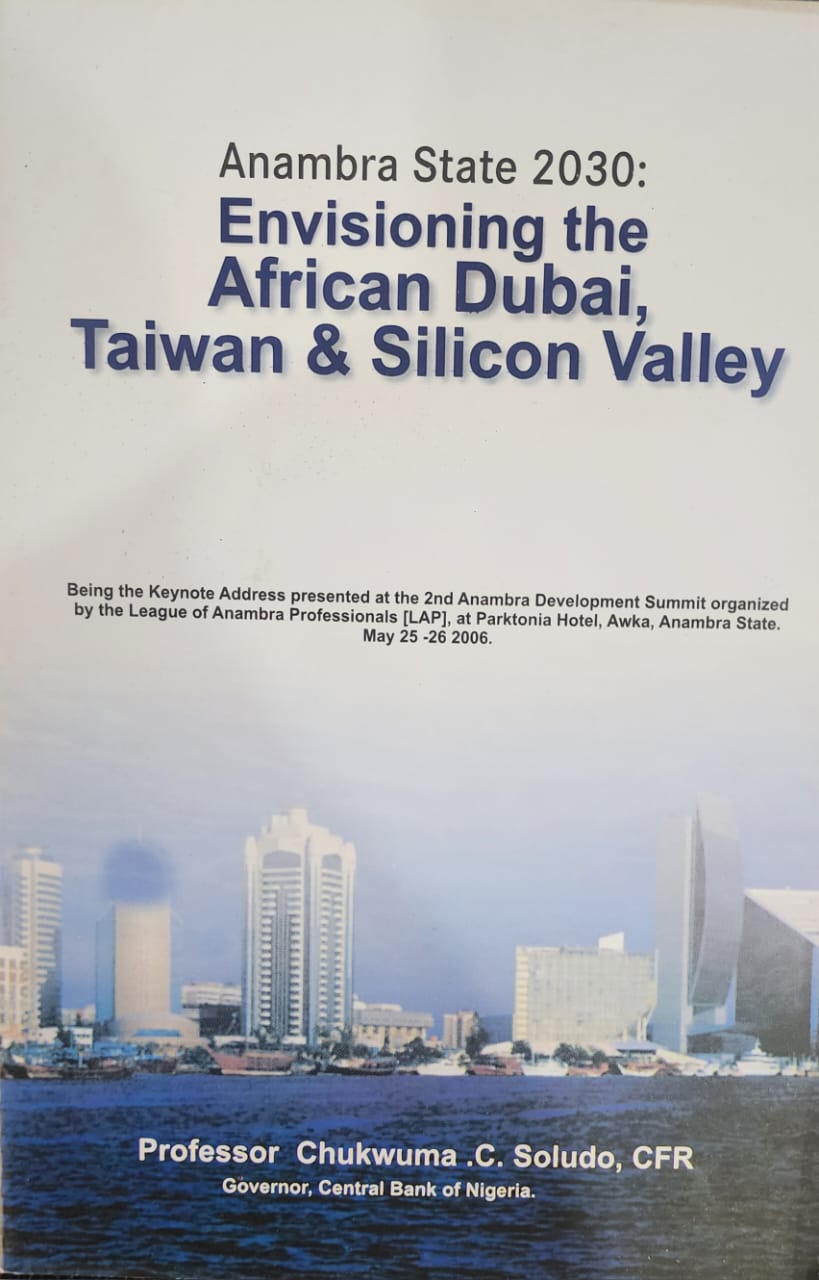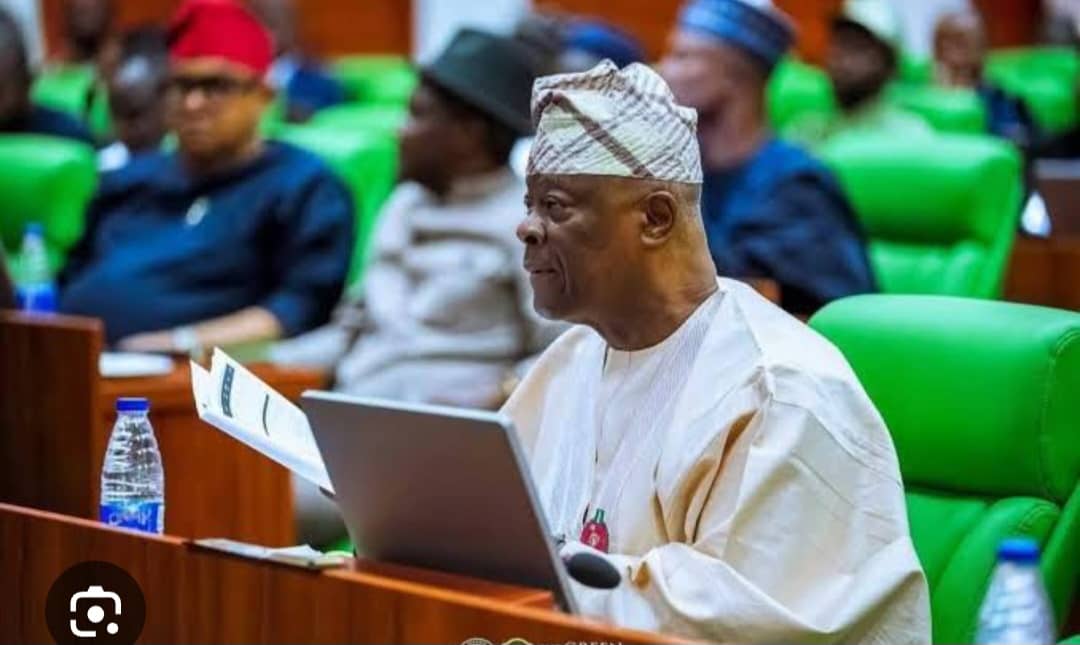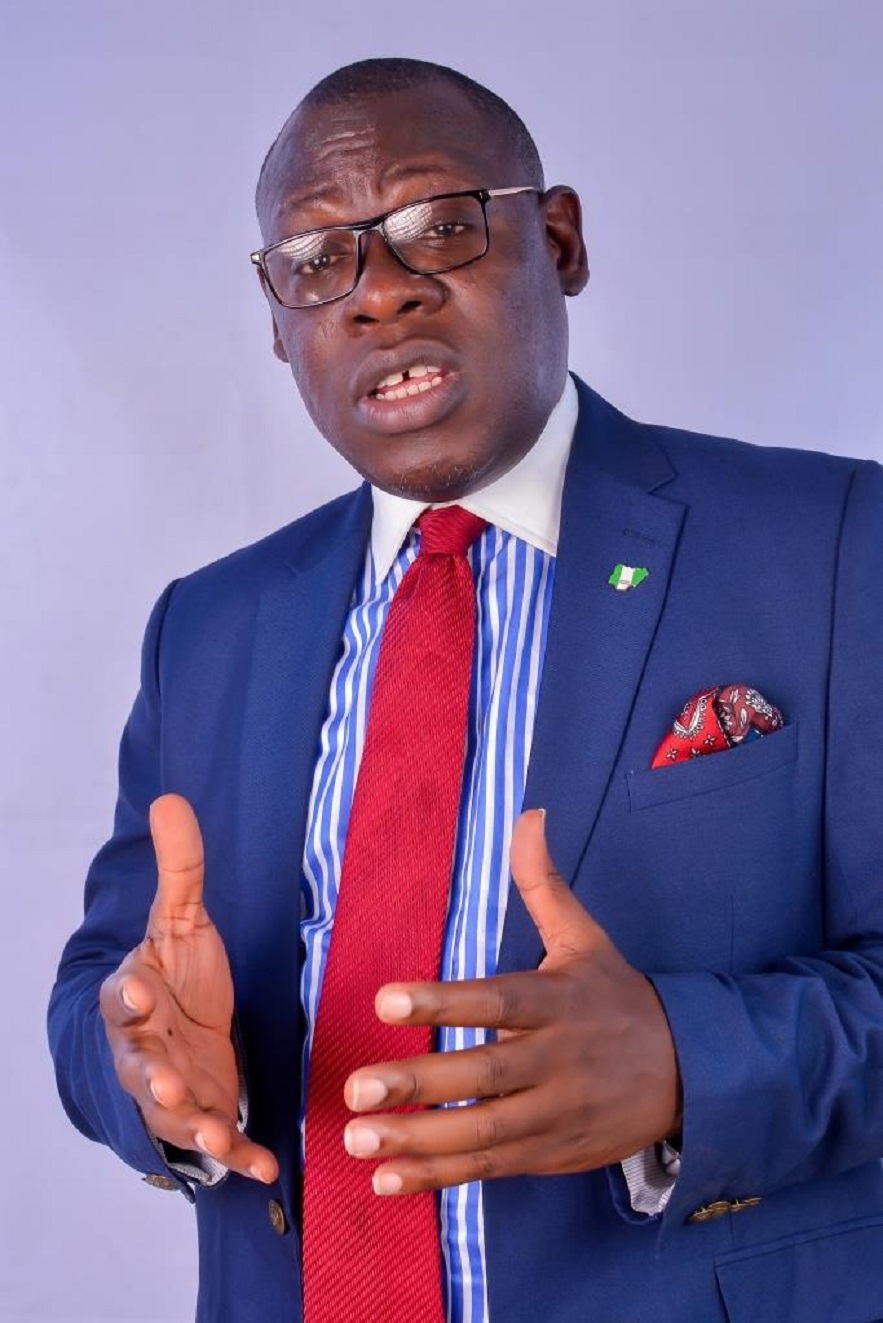Soludo’s Vision Of Anambra As Taiwan, Dubai
PAUL NWOSU

Governor Charles Chukwuma Soludo’s vision of transforming Anambra State into Dubai and Taiwan did not start today, or even when he was campaigning to be elected as governor. It is a well-thought-out process dating back to 2006.
In a keynote address entitled “Anambra State 2030: Envisioning the African Dubai, Taiwan & Silicon Valley”, presented at the 2nd Anambra Development Summit, organized by the League of Anambra Professionals (LAP) at Parktonian Hotel, Awka, Anambra State on May 25-26, Professor Soludo who was then the Governor, Central Bank of Nigeria posited thusly: “Anambra has all it takes to be a modern and prosperous state, and some have argued that Anambra is well positioned to be Africa’s Taiwan, Singapore or Dubai”.
Soludo depicts Anambra State as having all the crucial statistics to make grand progress: “With a population of 4.1 million and a landmass of 4887 sqkm, Anambra has the second highest population density after Lagos State. The landmass is so small that the entire state can conveniently be organized into one large industrial park or free trade zone.
“The demographics are also interesting: about 62 percent of the population lives in the urban areas (with 38 in rural areas) making Anambra the second most urbanized state after Lagos State. About 53 percent of the population is under 18 years of age.”
Stressing that poverty incidence in Anambra is one of the lowest in Nigeria, Soludo highlights the fact that adult literacy in the state was estimated at about 74 percent in 1999. According to Soludo, “If we use the number of commercial bank branches in a state as a pointer to the level of economic activities, then Anambra is fourth in Nigeria (after Lagos, Rivers and Abuja). It is certainly one of the most richly endowed states in terms of human capital in Nigeria”.

For Soludo, what is required is adequate planning to revive a city like Onitsha, and also reviving the industrialization momentum of Nnewi in the 1980s and 1990s which made Braughtigam to describe Nnewi in his article entitled “Industrializing in spite of the State” as the Taiwan of Africa. Soludo then wonders why “Ndi Anambra are everywhere, investing everywhere in Nigeria and outside, but not in Anambra.”
All it would take to understand modern-day development, Soludo avers, is to take a trip to Dubai to see what ideas can do. The straight-talking economist stresses: “We must mobilize the best minds from Anambra to draw up a 24-year Development Plan.” He puts forward the warning: “The truth is that without a framework for continuous measurement, a performance-based development programming is not possible.” He is quite insistent on the matter this way: “There is no reason why Anambra cannot be designed to be another Dubai.”
He argues that every development involves people, asserting: “To succeed, the Government of Anambra needs to build many bridges among the people; with the Federal Government; with other state governments; the private sector; NGOs, international community, labour, churches, town unions and communities. The traditional rulers also have important roles to play. Anambra has very strong town unions, and I believe that we are not yet fully utilizing the potentials of these associations for development.”
With an admirable can-do spirit, Soludo gives the marching orders: “Let us all roll our sleeves and go to work. With a clear vision, a comprehensive plan, and a people mobilized to go beyond self into collective action, I dream to see the skyline along the Niger river bank; to see five-star hotels in Onitsha and Awka; to see the tourist zones along the Anambra river; the recreational centres; the elite and middle class residential areas planned; private world-class schools; world-class infrastructure.”
Like Martin Luther King Jr, Soludo throbs with dreams: “In my dream I see the Asians, the Europeans and Americans rushing to be part of the new miracle in Nigeria called Anambra. In my dream I can see the growth drivers as technology, commerce, industry, agriculture and tourism. With the completion of the East-West road, the second Niger bridge, the East-South-South highways, I saw in my dream Anambra as the hub, servicing most of the adjoining states in the South-East, South-South and the North. I can even see a private power plant in the state guaranteeing uninterrupted power supply. I can still see more: a people united, a people committed, a people involved in the collective enterprise of development. Before I woke up, I saw a new state looking very much like a combination of what I have seen at the Silicon valley in the USA; Dubai in the UAE, and Taiwan.”
Soludo concludes powerfully: “Our destiny and that of our grandchildren are in our hands. Everyone can do something about it.”
*PAUL NWOSU*
Commissioner for Information
Anambra State.











